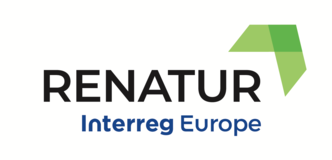The aim of RENATUR is to draw attention to the importance of peri-urban open spaces and their natural heritage in order to preserve it. Activities, which help us to achieve our aim, are the identification, analysis, dissemination and transfer of good practices and policy experiences into regional policy instruments. Activities are carried out in selected model regions, which have a great interest in the promotion and protection of the natural heritage of peri-urban open spaces in planning practice.
One of these model regions is Hajdú-Bihar County, with the Hajdú-Bihar County Government as partner in the RENATUR project. An interregional workshop for Hajdú-Bihar County was held on 27th of April 2021 online, to address Hajdú-Bihar County‘s regional development programme for years 2021 – 2027.
The specific challenges tackled during the workshop are the identification of:
a) suitable national/regional/local policy approaches, planning instruments, practical solutions to map ecosystem services (ES) related to a selected area, e.g. a municipality, with special focus on peri-urban open spaces;
b) methods and approaches to translate the role and significance of ES to local decision makers (e.g. mayors, assembly members, etc.) and citizens/local communities;
c) practices, guidance on the development of municipal green infrastructure concept to provide an easily applicable supporting document to decision makers for municipal planning.
Workshop Programme
Introductory session, 9.00 – 10.00 o’clock
• Introduction to the workshop
• Presentation of the RENATUR project
• Presentation and discussion of the challenges of implementing ecosystem services concept at the local scale to support the development of green infrastructure concept as a policy approach to protect natural heritage of peri-urban open spaces
Case study session, 10:00 – 12:00 o’clock
• Introduction to the case study area
• Presentation of the vision for the case study: applying municipal green infrastructure concept to protect peri-urban open spaces while providing different ecosystem services for local communities
Breakout group discussions
Group 1) “What are suitable policy approaches and methods to map area-based ecosystem services? How to develop a municipal green infrastructure concept built upon the results of the mapping process? How to use such green infrastructure to protect peri-urban open spaces?”
Group 2) “How to translate the significance of ES for decision makers and how to make it better understandable for citizens/local communities?
Peer review session, 13:30 – 16:00 o’clock
• Introduction to the peer review process
• Detailed discussion by peers of the strengths/weaknesses and opportunities/threats of the most promising strategies and approaches for mapping ecosystem services and incorporating those in municipal green infrastructure conceptual document
• Detailed discussion by peers of the strengths/weaknesses and opportunities/threats of the most promising strategies and approaches for a common understanding of the role and benefits of ecosystem services by both policy/decision making level and local citizens
• Discussion of ideas on how to develop recommendations for an efficient and applicable municipal GI concept
• Outlook and tasks to develop the peer review report
Results and materials from the workshop are available here.

